Bali, known as the “Island of the Gods,” has long captured the hearts of travelers seeking pristine beaches, lush landscapes and a vibrant culture. However, in recent years, Bali has also become synonymous with mass tourism and commercialization. Experience the Authentic Bali doesn’t come naturally, especially for short term visitors. As the island grapples with the challenges of overtourism, the quest for an authentic Balinese experience has never been more critical.
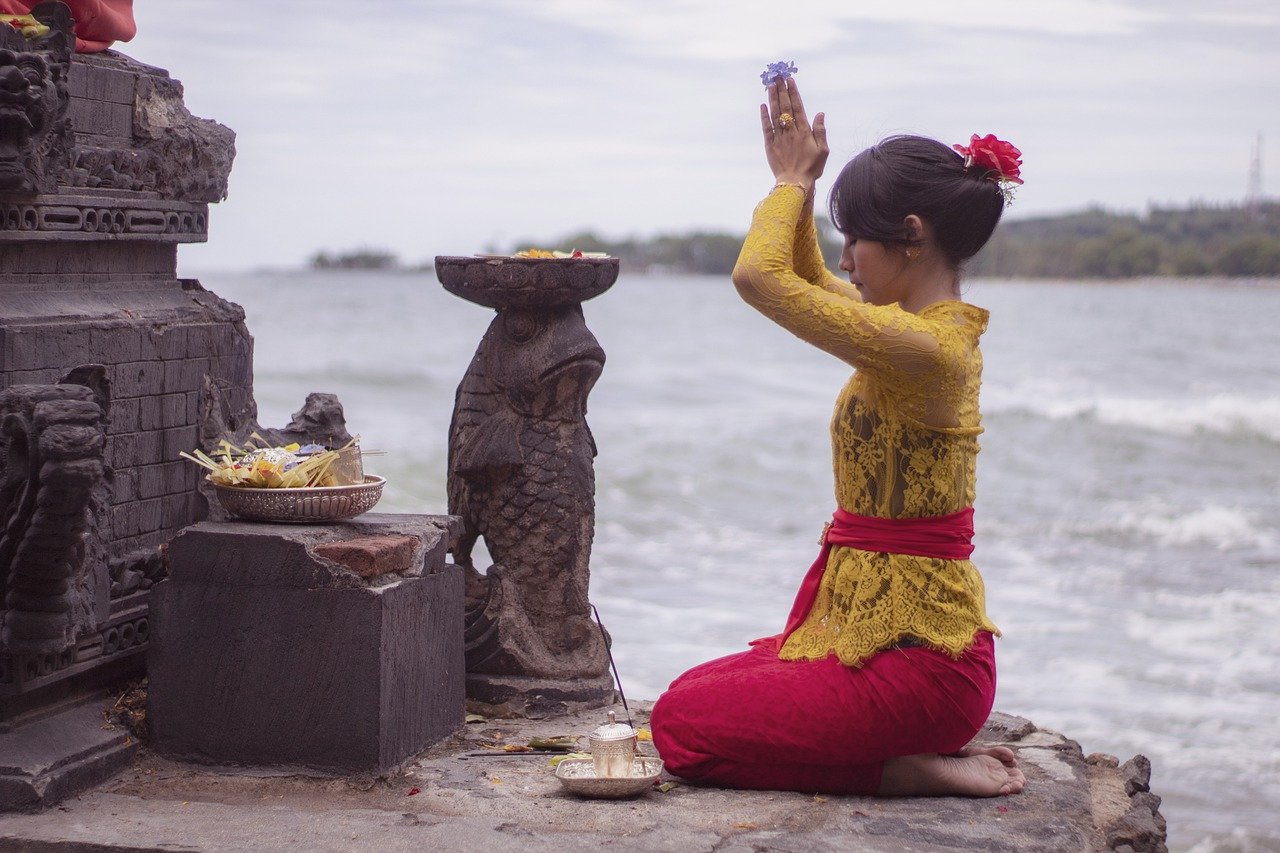
In this guide, we will take you on a journey through the heart of Bali’s original culture and how to experience it. From ancient traditions to contemporary expressions of art and cuisine, you’ll discover how to immerse yourself in the authentic Bali and contribute to the preservation of this unique island paradise.
Understanding Balinese Culture
Before we embark on our cultural exploration, it’s essential to understand the foundation of Balinese culture. First of all, Bali’s culture is deeply rooted in Hinduism, which was introduced to the island over a thousand years ago, while most island in Indonesian are Muslime, and afew dominated by christianity. However, what sets Bali apart is its distinctive blend of Hinduism with local animist beliefs and practices. This fusion has given birth to a unique form of Hinduism that shapes every aspect of Balinese life.
Temples, Rituals, and Ceremonies
Balinese Hinduism revolves around a multitude of temples and rituals. Each village has several temples, and the island as a whole is home to thousands. These temples play a crucial role in daily life, and ceremonies are a common occurrence.
How to experience Temples, Rituals, and Ceremonies in the most authentic way
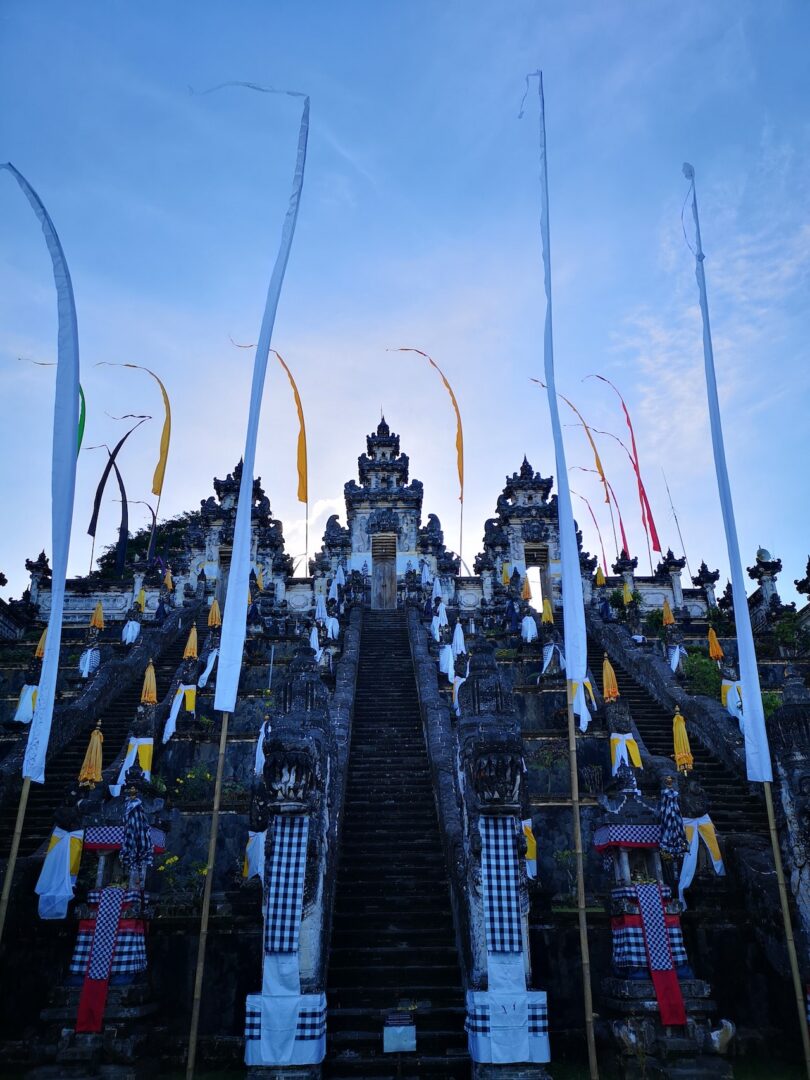
- To experience temples, rituals and ceremonies in it’s authenticity, attend one of the frequent occasions. The energy, colors, and devotion of the Balinese people during these events are awe-inspiring.
- We recommend to make friends with a local Balinese or hire a tour guide to provide you with information and can answer your questions. There is so much more to find out, if you don’t rely just on the web, and really start connecting with the people.
- Another helpful trick: Visit temples other than the most popular, as they tend to be less streamlined for tourists, and more for the local people.
- Just stroll around the village and observe. Balinese perform small rituals several times a day.
Experience the Authentic Bali Culture: Art, Music, and Dance
Art is the lifeblood of Balinese culture. Traditional painting, sculpture, and craftwork have been practiced for generations, by almost anyone. In Bali, practicing art is not just a hobby like in most other cultures, but deeply interwoven with social, cultural and spiritual life. Important are Balinese music and dance. The gamelan orchestra, with its distinct metallic sounds, accompanies intricate dance performances.
How to experience Art, music and Dance in the most authentic way
- Visit art villages like Ubud and Batuan to witness skilled artisans at work. Watch them work, and start a conversation, Balinese are very friendly people!
- Try a local workshop to learn about techniques and the meaning behind motives and stories.
- Don’t miss the chance to attend a traditional dance show to witness the grace and storytelling of Balinese dance.
- Gamelan is being played in almost every village, usually in the small village halls. People of all ages just meet to play together, perform, and even write new music together. Just follow your ears, and watch them practice and play. No need to buy tourists concert tickets. Balinese are very open and welcoming to anyone. Dive into it and get in trance by the amazing rhythms.
Local Clothing and Etiquette
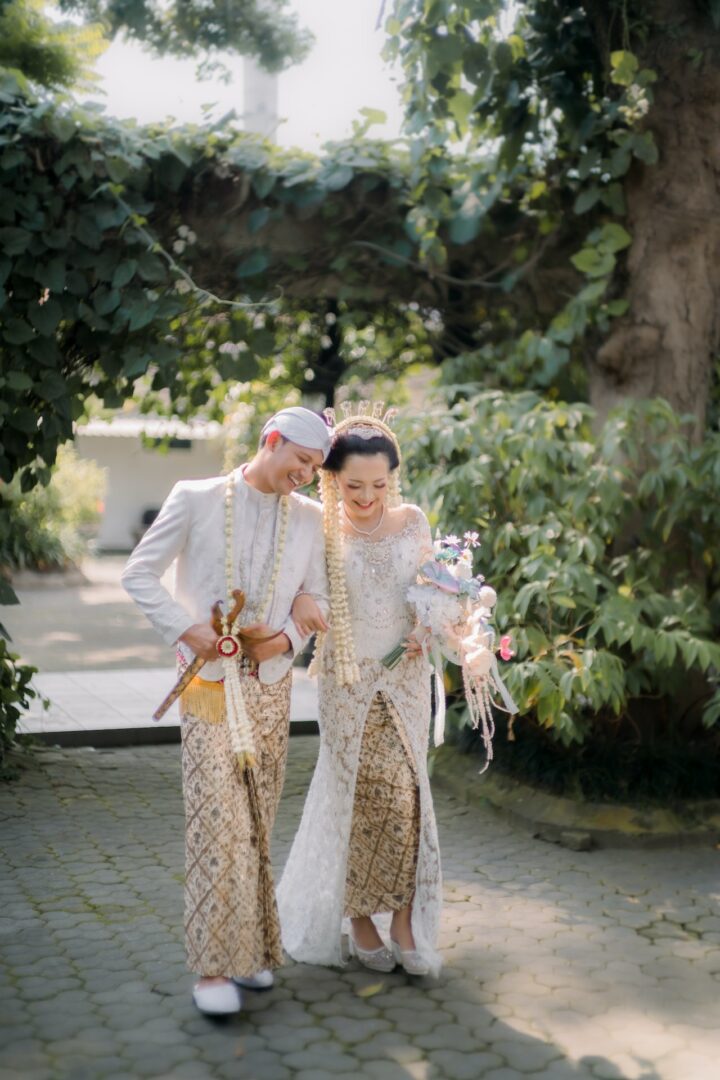
Another fun way to Experience the Authentic Bali Culture is by wearing traditional clothing. Sarongs and kebayas are commonly worn by locals, and wearing them is not only fun, but also shows your respect for their traditions. Learning basic etiquette, such as how to greet people with a polite “om swastiastu,” will go a long way in connecting with locals and showing your appreciation for their customs.
Engage with Local Communities
One of the best ways to understand Balinese culture is to interact with local communities. Visit villages, engage in conversations, and participate in everyday activities. Many villages offer homestay experiences, where you can live with a local family, eat their food, and learn about their way of life firsthand.
Art and Craftsmanship
Bali’s art scene is vibrant and diverse. From intricate wood carvings to mesmerizing paintings, the island’s artistic heritage is boundless. Here is how to Experience the Authentic Bali Culture of Art and craftmanship:
Art Villages Head to Ubud, Bali’s cultural heart, to explore numerous art villages. Watch skilled painters craft intricate canvases, visit woodcarvers as they create elaborate sculptures, and admire the exquisite silver jewelry crafted by local artisans. The art villages offer a glimpse into the creative soul of Bali.
Balinese textiles are renowned for their intricate designs and vibrant colors. Batik and ikat are traditional textile techniques that produce stunning fabrics. You can find these textiles in local markets, where you can purchase unique pieces as souvenirs. Explore the art of batik-making and even try your hand at creating your own designs.
Dance and Music
Balinese dance is a mesmerizing blend of intricate movements, colorful costumes, and storytelling. Attend a traditional dance performance, such as the Legong or Barong dance, to witness the beauty of Balinese dance. The choreography and expressions are a window into the island’s rich culture.
Dance performances and shows are always accompanied with the gamelan. The gamelan orchestra is the heart of Balinese music, as we explained above. Comprising gongs, metallophones, and drums, the gamelan creates hauntingly beautiful music. Don’t miss the opportunity to listen to a gamelan performance, whether it’s during a ceremony or at a cultural show.
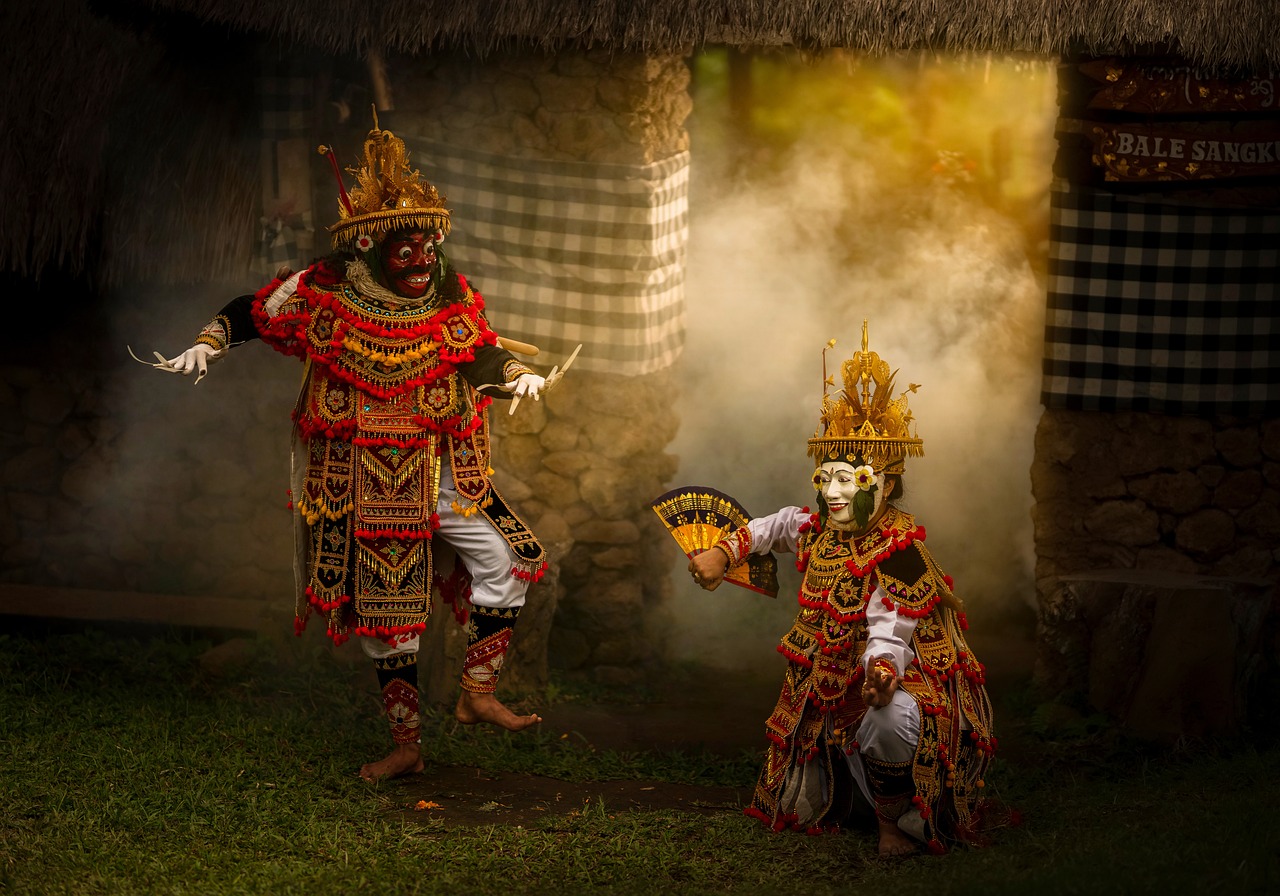
Culinary Adventures
Balinese cuisine is a culinary journey that reflects the island’s rich culture and history.
Must-Try Dishes Sample authentic Balinese dishes like Nasi Goreng (fried rice), rendang (spicy beef stew), and Ayam Betutu (Chicken). Pair your meals with traditional beverages like arak (a palm sap spirit) and fresh coconut water.
Tipp: Explore the island’s local eateries and bustling markets. Warungs (small family-run restaurants) offer affordable and authentic Balinese food. Visit traditional markets like Pasar Badung in Denpasar or Ubud Market for a culinary adventure. Engage with the vendors, taste exotic fruits, and sample street food for an authentic experience.
Exploring Authentic Villages
While Bali has its share of tourist hubs, there are still authentic villages where you can immerse yourself in traditional Balinese life and experience the Authentic Bali Culture. Here are some recommended ones to visit:
Penglipuran
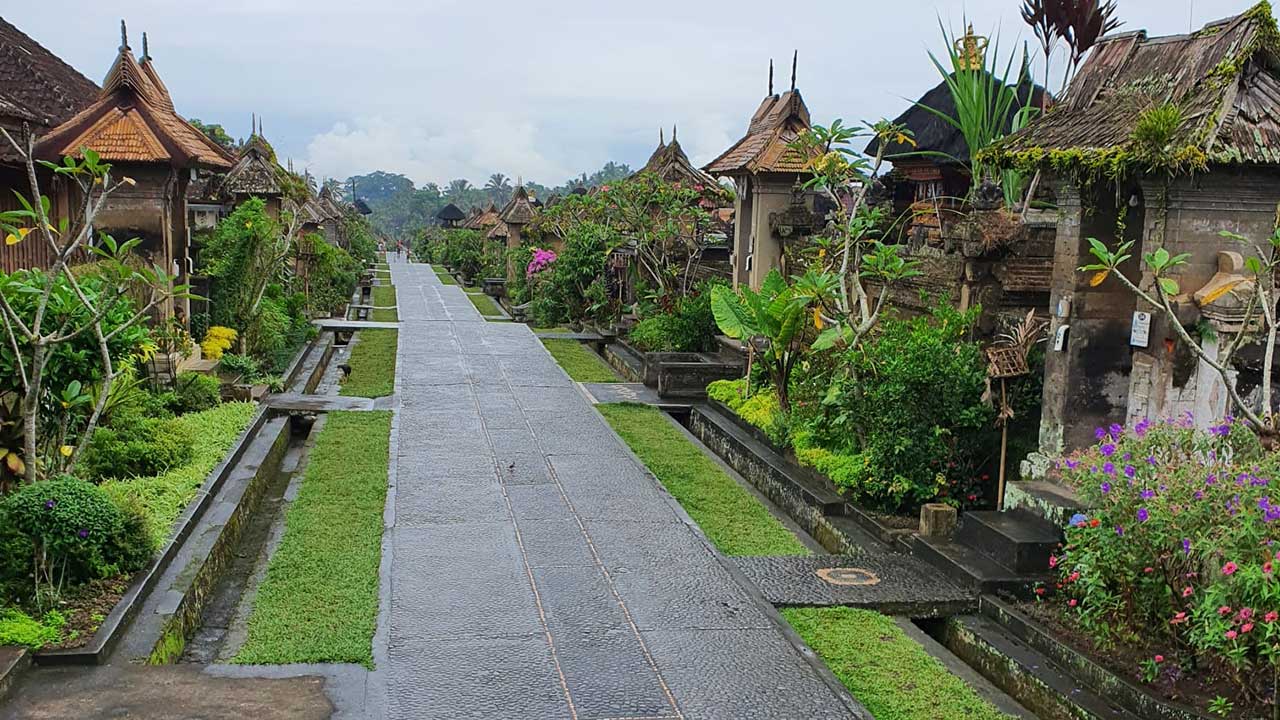
Penglipuran is a picturesque village known for its well-preserved Balinese traditions and stunning architecture. A great place to experience the Authentic Bali Culture. Explore the intricately designed houses and witness the warm hospitality of the villagers. Staying in a Penglipuran homestay is an excellent way to experience daily life in this authentic village. This place is also very tidy, and aware of the environment: Penglipuran used to be the cleanest village in the world, and is currently ranked 3rd.
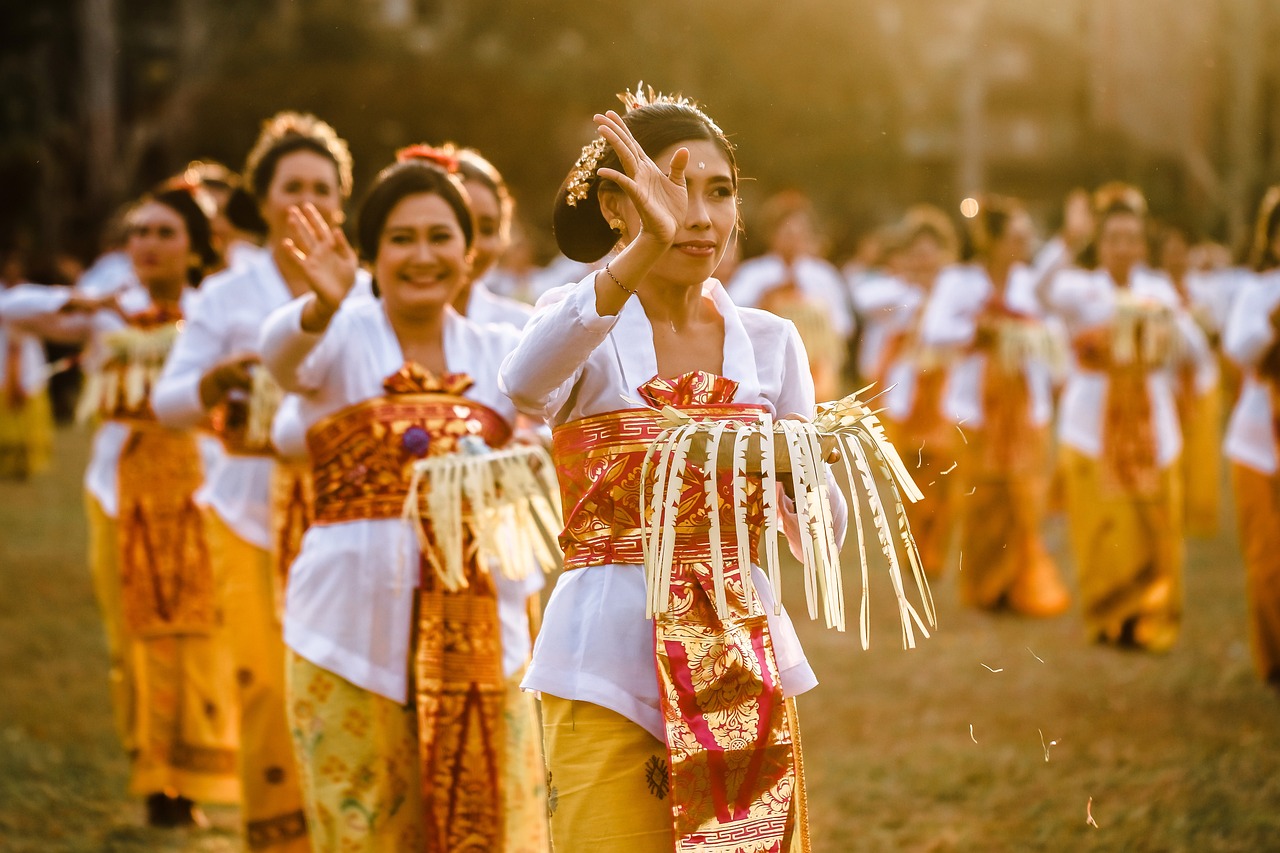
Tenganan
Tenganan, a Bali Aga village, offers a unique glimpse into pre-Hindu Bali. Known for its double-ikat weaving, Tenganan is a treasure trove of cultural heritage. Visitors can observe traditional weaving techniques and learn about the ancient customs that continue to thrive here.
Ubud Valley
The area east to Ubud offers amazing landscapes, and numerous gorgeous villages that offer accomodations and homestays. An ideal area to both dive into the nature and culture of Bali.
Eco-Friendly and Responsible Travel
To ensure the preservation of Bali’s authentic culture, it’s crucial to travel responsibly and sustainably.
Support Local Communities
Choose accommodations, tour operators, and restaurants that actively support local communities. Seek out eco-friendly and sustainable options that minimize the environmental impact of your visit. Bali has a big plastics waste problem, caused also by touruism. Engage in responsible tourism practices, such as reducing plastic usage and supporting ethical wildlife sanctuaries.
Respect the Environment
Bali’s natural beauty is a vital part of its culture. Respect the environment by disposing of trash properly, participating in beach cleanups, and supporting organizations working to protect Bali’s natural heritage.
Give Back to the Community
Even tough tourism brings a lot of money to the island, there is still a lot of poverty in bali, especially in the more remote areas, that don’t see too many tourists. Consider contributing to local charities or volunteering opportunities that support education, healthcare, and other essential needs within Balinese communities. Your support can make a meaningful difference in preserving the island’s culture.
Learning the Language
While English is widely spoken in Bali’s tourist areas, learning a few Balinese or Indonesian phrases can enhance your cultural experience.
Basic Indonesian Phrases
- Selamat pagi: Good morning
- Terima kasih: Thank you
- Tolong: Please
- Sama-sama: You’re welcome
- Apa kabar?: How are you?
- Sedikit saja: A little bit
Learning these phrases can help you connect with locals and show your respect for their culture.
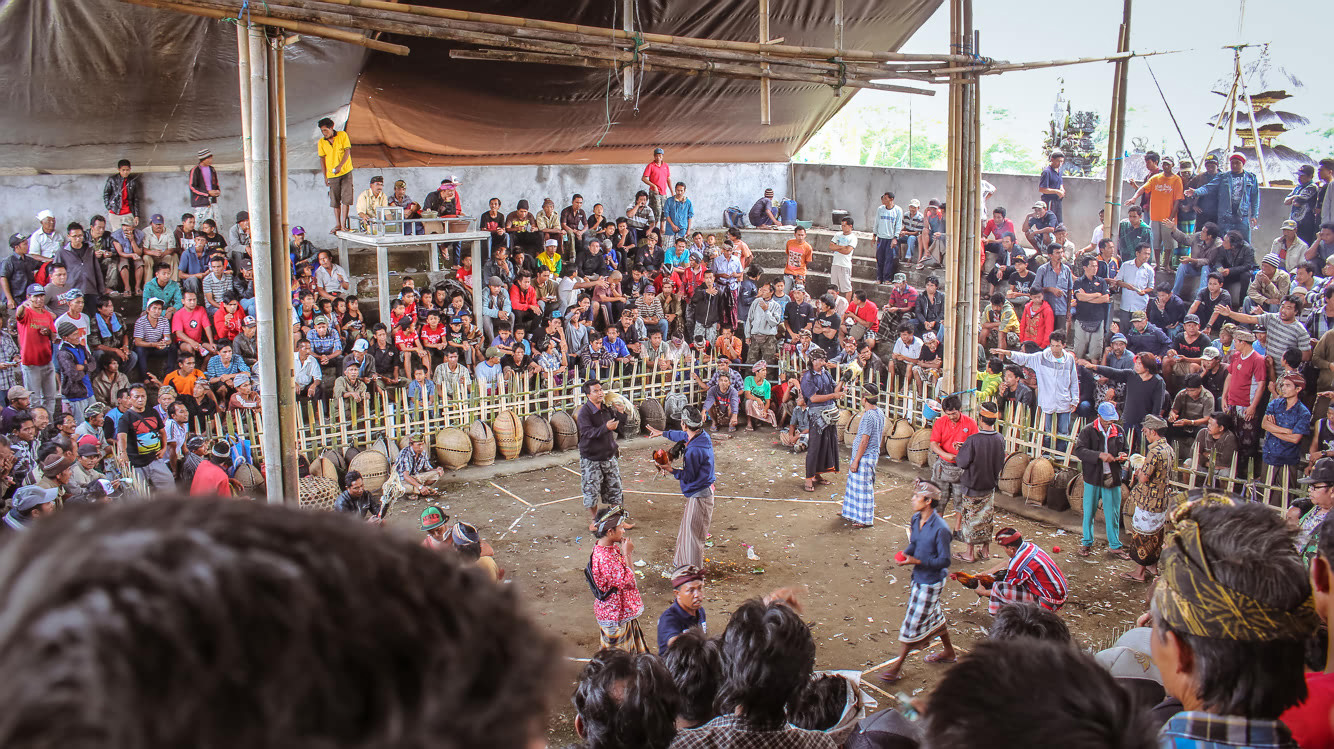
10 Amazing events and ceremonies of the Authentic Bali
- Tooth Filing Ceremony: In Bali, there’s a unique coming-of-age ritual called “Metatah,” where teenagers have their upper canine teeth filed down. It symbolizes the control of evil tendencies and the transition into adulthood.
- Cockfighting: While cockfighting is illegal in many places, it’s a legal and widely practiced sport in Bali. Locals take their roosters seriously, and matches can draw quite a crowd.
- Rice Goddess Dewi Sri: Balinese culture places great importance on rice, the staple food. They even have a rice goddess named Dewi Sri, and there’s a special festival called “Subak” to celebrate rice cultivation.
- Sacred Trees: Bali is dotted with sacred trees, often wrapped in colorful sarongs. Locals believe these trees are inhabited by spirits, and offerings are made to appease them.
- Ogoh-Ogoh Parade: The night before Nyepi (Day of Silence), Bali hosts a vibrant parade called Ogoh-Ogoh. These giant, grotesque puppets symbolize evil spirits and are paraded through the streets, followed by a grand bonfire to symbolize purification.
- The Balinese Calendar: Bali uses a unique calendar system called Pawukon, consisting of ten concurrent weeks. Each day is associated with a specific name and a way of life, influencing various aspects of daily routines.
- No Left-Handed Shaking: In Balinese culture, the left hand is considered impolite for giving or receiving anything, including handshakes. It’s associated with activities deemed unclean, such as bathroom use.
- Royal Cremations: Balinese royal cremations are grand and elaborate affairs. They involve massive, intricately crafted cremation towers that can take the form of animals, temples, or even vehicles.
- Offerings for Vehicles: It’s common for Balinese people to make small offerings called “canang sari” on their vehicles’ dashboards for safe travels. These offerings are made daily and include incense, flowers, and rice.
- The Silent Day of Nyepi: On Nyepi, the Day of Silence, everything on the island comes to a halt. No work, travel, or entertainment is allowed, and even the airport is closed. It’s a day for self-reflection, meditation, and relaxation.
Conclusion
Bali’s authentic culture is a treasure trove waiting to be explored. By immersing yourself in Balinese traditions, supporting local communities, and traveling responsibly, you can experience the original island culture while contributing to its preservation. Whether you’re captivated by the intricate art, the mesmerizing dance, or the flavors of Balinese cuisine, Bali offers a cultural adventure like no other.
FAQ
What is the significance of Balinese culture in Bali?
Balinese culture is deeply rooted in the island’s history and identity. It plays a central role in shaping daily life, religious practices, art, and traditions. Understanding Balinese culture is essential for anyone seeking an authentic experience on the island.
How can I participate in traditional Balinese ceremonies and festivals?
To participate in traditional Balinese ceremonies and festivals, it’s important to be respectful and dress appropriately. You can attend public events or seek invitations through local connections.
What are some must-see cultural attractions in Bali?
Bali offers a wealth of cultural attractions, including temples like Uluwatu and Besakih, art villages in Ubud, traditional dance performances, and markets like Ubud Market and Sukawati.
How can I support local communities and sustainable tourism in Bali?
Supporting local communities in Bali can be achieved by choosing eco-friendly accommodations, ethical tour operators, and locally-owned restaurants. Additionally, consider giving back by volunteering or contributing to local charities that support education and healthcare, or join a beach clean up.
What are some lesser-known villages in Bali where I can experience authentic culture?
Lesser-known villages like Penglipuran and Tenganan offer authentic cultural experiences. These villages have preserved their traditions and architecture, providing visitors with a window into the past.
What is the Ogoh-Ogoh parade, and when does it happen in Bali?
The Ogoh-Ogoh parade is a vibrant prelude to Nyepi, the Day of Silence. It involves giant puppet-like figures representing evil spirits parading through the streets. The parade typically occurs on the evening before Nyepi, which falls on the Balinese New Year.
What is the Balinese Pawukon calendar, and how does it affect daily life in Bali?
The Pawukon calendar is a unique calendar system in Bali consisting of ten concurrent weeks. Each day is associated with specific names and activities, influencing various aspects of daily life, from ceremonies to agricultural practices.





